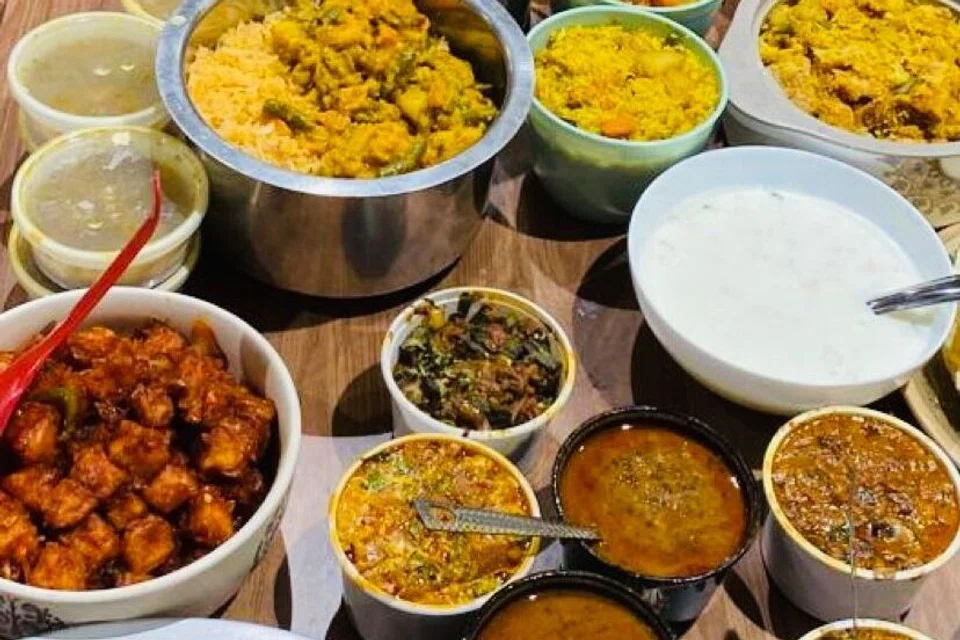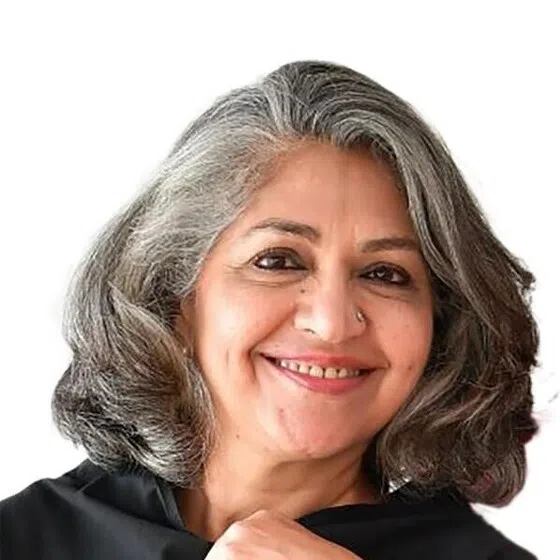Let’s be honest, the word “potluck” doesn’t just mean food. It means judgement.
You’re not just bringing a dish; you’re bringing your reputation, your family honour, and sometimes your mother’s recipe that’s been passed down with the solemn warning: Don’t mess it up.
Somewhere between the invention of WhatsApp groups and the rise of reusable serving dishes, the Desi Potluck emerged – part cultural exchange, part culinary Olympics, and part social experiment.
No one knows who started it. Some say it began when one auntie decided she was tired of cooking for 20 people on a Sunday and cleverly suggested: “Everyone bring one small dish.”
That phrase – “one small dish” – has since produced food mountains that could feed a small nation.
Potlucks have now become the heartbeat of diaspora life. It has become an essential form of social survival – a way to say “we’re still connected”, without anyone admitting they are too tired to host alone.
Why potlucks took over our social lives
There’s a simple reason potlucks have become the default: distribution of labour with Instagrammable bragging opportunities. Everyone gets to participate – from the culinary artiste who arrives with saffron-infused pulao to the minimalist who brings “ice cream, because it’s ‘too hot’ to cook”.
No Desi Potluck ever starts on time. The official start time might be 7pm, but everyone knows that’s code for 8.15 IST (Indian Standard Time) – because one must arrive fashionably late but early enough to inspect what others have brought.
Every dish is introduced like a celebrity guest:
“This is my signature butter chicken – made with Greek yogurt, not cream.”
“These vadas are air-fried, very healthy.”
“This dal is simple, like my mother used to make.”
You are expected to nod reverently, taste it, and say: “Wah, perfect balance of spice”, even if it’s so spicy that your tongue has gone temporarily numb.
In an age where we’re all counting calories, steps, and social energy, the potluck offers an illusion of balance. “You bring the carbs, I’ll bring the protein.”
It’s like a spreadsheet of shared responsibility – until you realise five people brought paneer and no one brought dessert.
The sociology of the potluck
The potluck varietal is multifarious:
There’s the LadiesOnly Potluck, aka the kitty party.
The Couples Potluck (whisky courtesy the hosts), where the ladies form one group and the men another and gossip the hell out of the evening – as they say, “if you are not at the dinner, you are on the menu”.
The Bhajan group is pure vegetarian, no garlic, no onion potluck.
And the list goes on.
In more affluent groups, the dishes arrive in chic casserole dishes. Recipes are name-dropped like luxury brands: “Have you had my Ottolenghi pomegranate salad?” “No, but I luuuv Sanjeev Kapoor’s Shaam Savera!”
The quinoa salad with Japanese watermelon will sit proudly next to the organic kale chaat with lotus root crisps, which are “air-fried, of course – oil is so 2010.”
In the less “branded” potluck, however, it’s not about presentation, it’s about plenty. The food comes piled high in humble foil trays or Tupperware, exuding explosive desi flavours.
There’s laughter, loud debates, and genuine appreciation for the woman who’s brought her “secret” chicken curry – the one she swore she’d take the recipe of to her grave, except today, because everyone’s now family!
And heaven forbid you offer to bring salad. You’ll be met with polite horror. “Salad? Are you dieting?” Because in Indian culture, salads are seen not as side dishes but as symptoms of distress.
At the end of the day, we are all driven by a common agenda – feed and be fed. It doesn’t matter whether you arrive in a Tesla or a Toyota; everyone leaves with leftovers wrapped in foil and at least one new WhatsApp recipe video.
The evolution of potluck etiquette
In the early days, potlucks were simple: few families, one dining table, and a shared love for food that reminded us of home. Now, potlucks have evolved into full-blown productions – theme nights, spreadsheets, sign-up sheets, even PowerPoint menus.
There’s always one organiser who takes it too seriously: “No duplicates, please. We already have one butter chicken. Diversity in cuisine is encouraged!”
Some guests will bring store-bought food disguised as homemade – a manoeuvre perfected over generations. “Oh, it’s just something I threw together,” said one diva, presenting dahi vada that look suspiciously identical to those from Kailash Parbat.
The usual cast:
The Experimental Chef, who insists on fusion cuisine no one asked for. (“It’s pav bhaji tacos!”)
The Traditionalist, whose dish is unchanged for 20 years, but is still the first to disappear.
The Food Philosopher, who eats little but talks a lot – about gluten, sustainability, and Ayurveda.
The Chronic Compliment Collector, who hovers nearby waiting to hear, “Your biryani was divine!”
The Recipe Collector, who keeps asking everyone for their recipes with the promise to cook them one day!
But Why Do We Keep Going?
Because, despite the chaos, potlucks are not really about food. They are about belonging. About fellowship – where the smell of spice and the sound of laughter overlap until you can’t tell where one ends and the other begins.
Over the years, friendships are forged between people who started as “plus ones”. Birthdays are remembered, recipes are exchanged, and WhatsApp groups remain active long after the party ends.
It’s this beautiful contradiction that makes potlucks endure: they’re chaotic, overdone, occasionally competitive, but deeply human.
You walk in as an individual, balancing your Creuset dish but you leave as part of a flock – slightly fuller, slightly happier, and definitely carrying home someone else’s container.
So, the next time an invitation pops up that says “Just bring one small dish,” don’t hesitate.
It’s never really about the food. It’s about the stories, the connections, and the unspoken truth every Indian knows: The best way to build community is one overflowing plate at a time.
(Daisy Irani Subaiah is a media and theatre professional with work experience in Singapore and India.)



